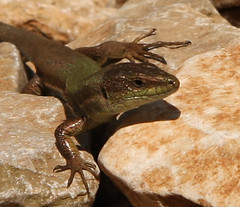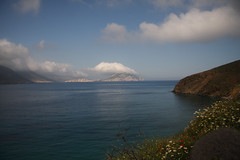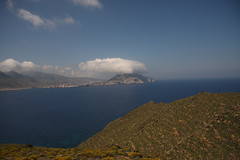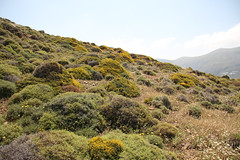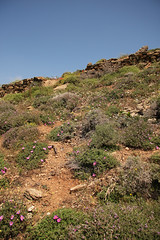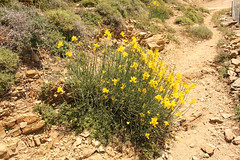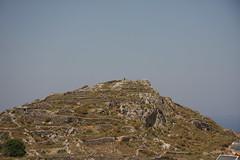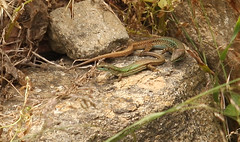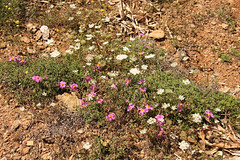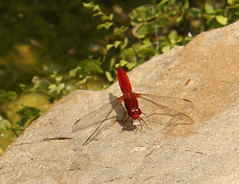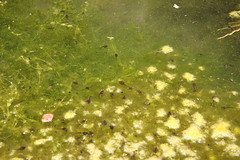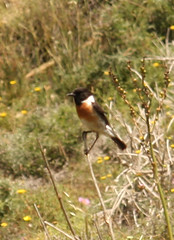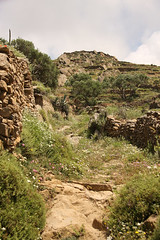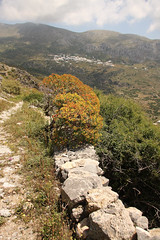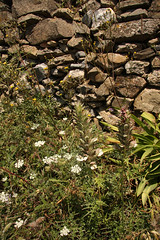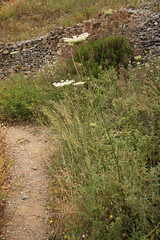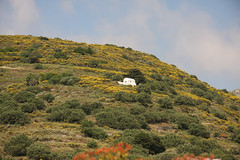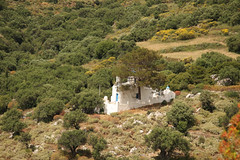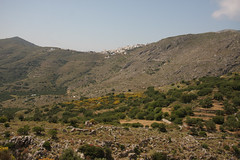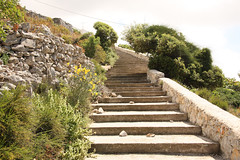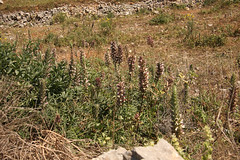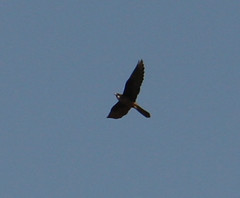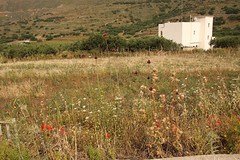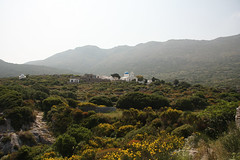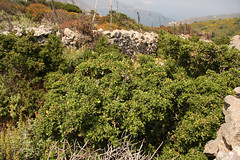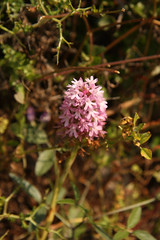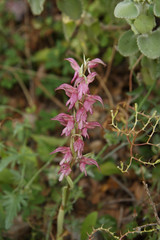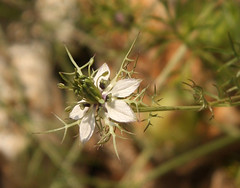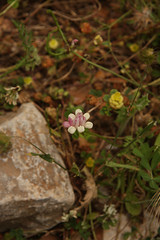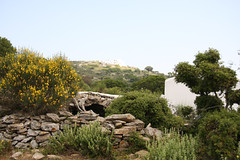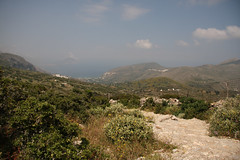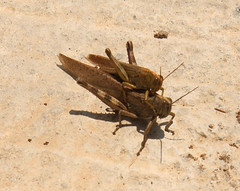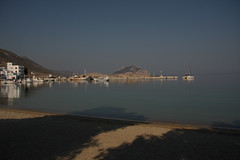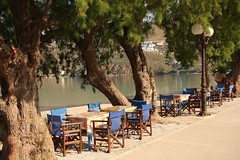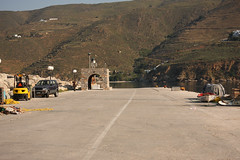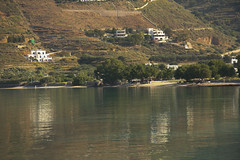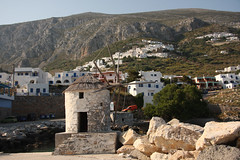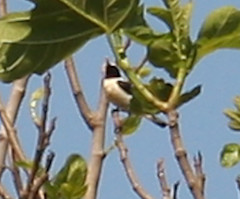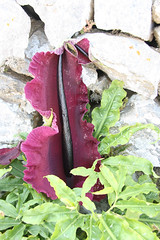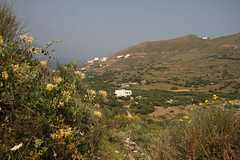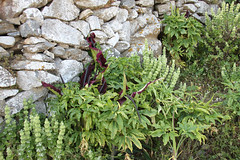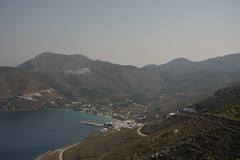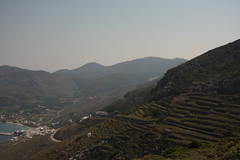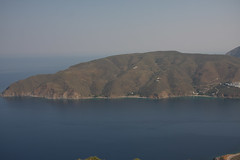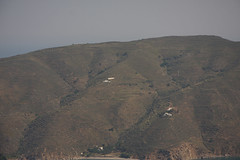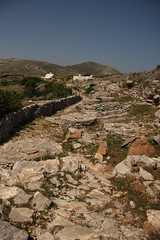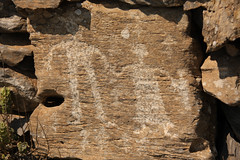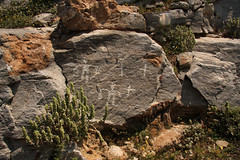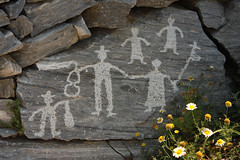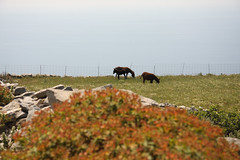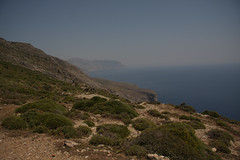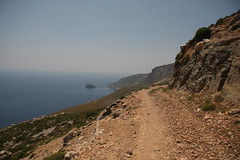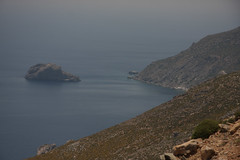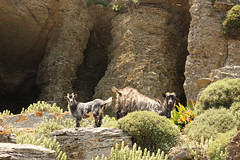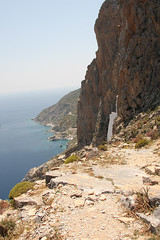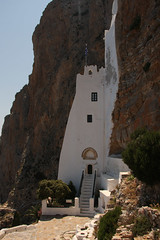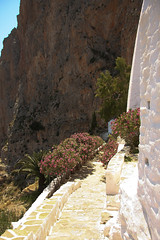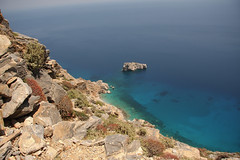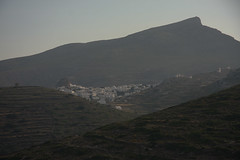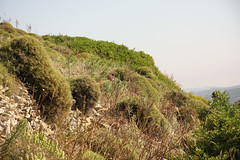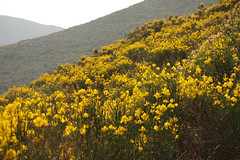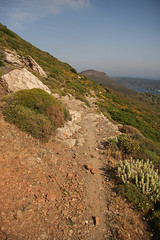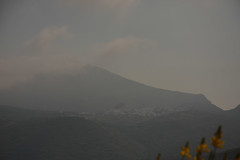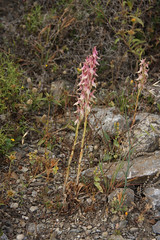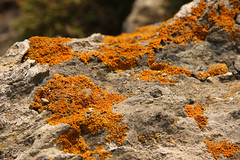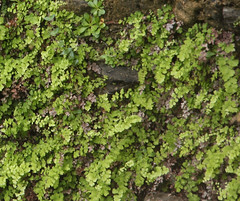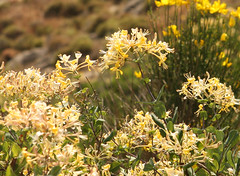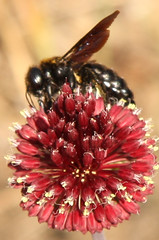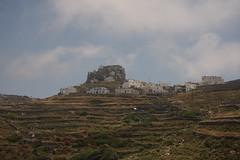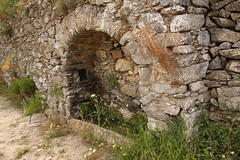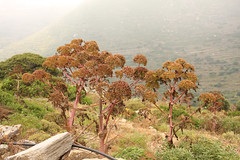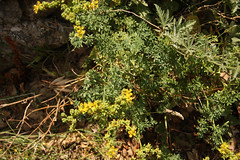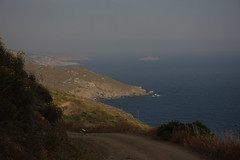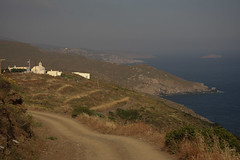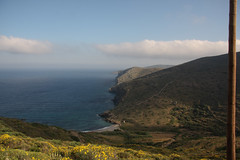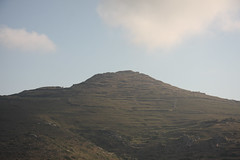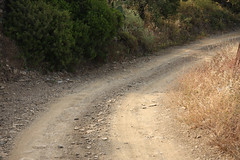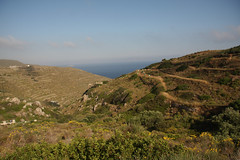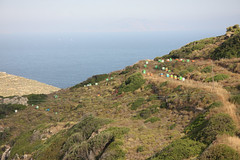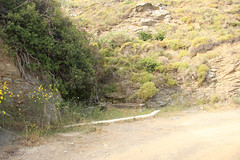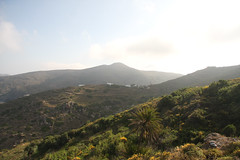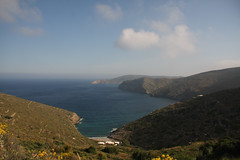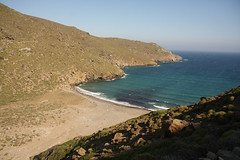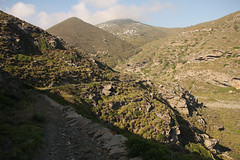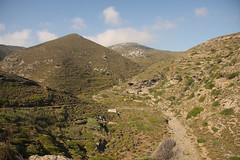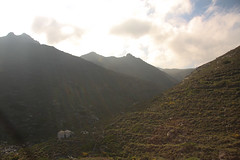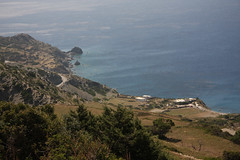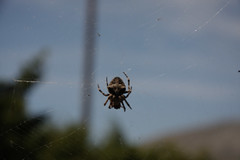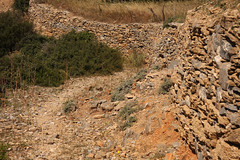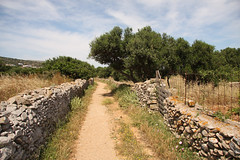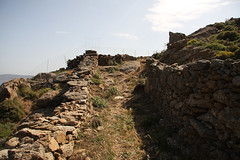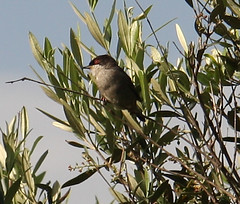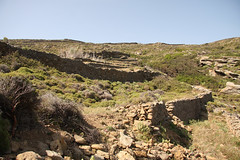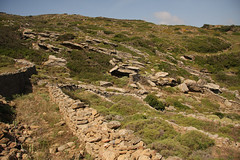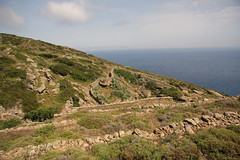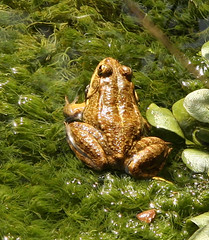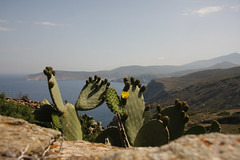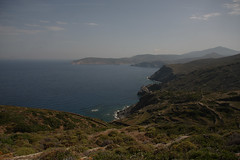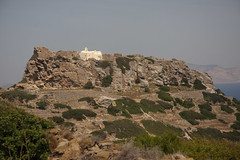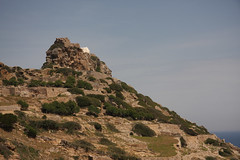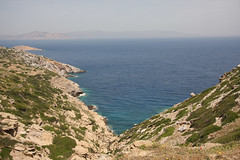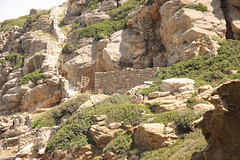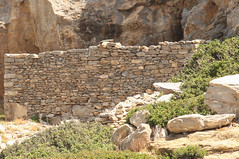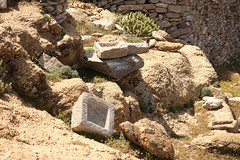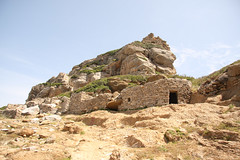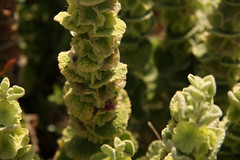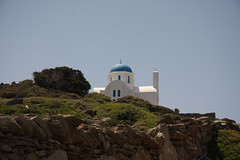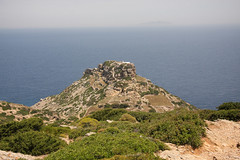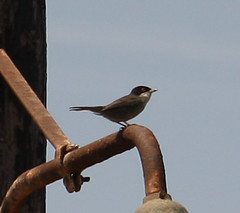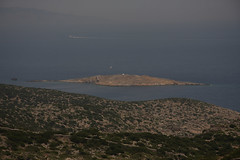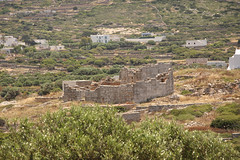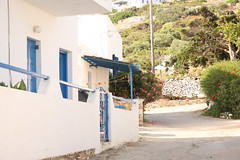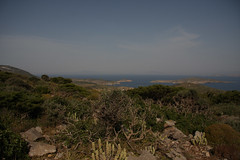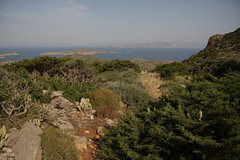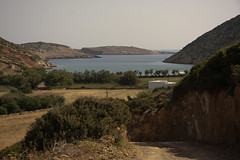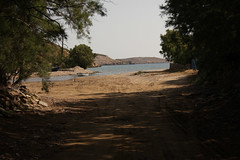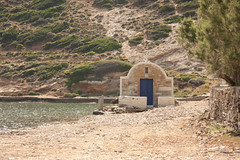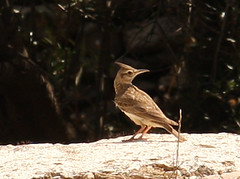|
Walking on the Greek Island of Amorgos
The page is split up as follows Scenes from each day of walking.
For details of the wildlife seen click this link Wildlife of the Islands (Opens in a new page) Here there are mainly photographs of the plants seen. Obtaining accurate Latin names has been difficult and any English names shown may only give some guidance as to the equivalent species in the UK. ***************** |
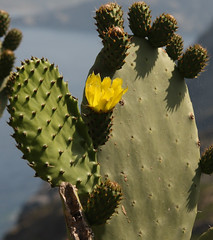
|
The island of Amorgos lies in the East of the Islands of the Greek Cyclades. I spent eleven days on the island walking for over four and a half hours each day. The terrain is very rugged and barren as the island has on average only 35 centimetres of rain each year. The highest peak is 709 metres in height, most days my walking would be undulating with sometimes long up hill stretches. One day required three hours of walking up hill or on level ground reaching a height of 500 meters before returning to the port of Eghiali. Another day, the longest, involved walking along the spine of the island. I climbed up from the port of Eghiali along the spine of the island to reach the capital Chora. The route takes you past the very unique Monastery of Chozoviotisa built into the cliff face high above the Adriatic. The island is 28.8 kilometres long and between 8kms and 2.4kms wide.
Walking can be a delight when the prevailing north wind is blowing to cool you down but even then labouring up some of the long stretches of path with loose stones underfoot can be tiresome. When you stop to rest the only sounds are the wind blowing across the top of your water bottle or the distant sound of the waves on the beach below with the calls of the birds, gulls, falcons, wheatears and warblers. Oh and the ever present bells from the goats. You are rarely out of sight of the sea and sometimes both coasts are visible with the occasional sight of a ferry or the sails of a yacht. My greatest pleasure was stopping to photograph the ever changing views with the colourful blue and white churches against a backdrop of a multitude of beautiful wild flowers. But beware many of the plants have to protect themselves from the goats and the sparcity of water and are very spiny.
What else is there to do? Well swimming of course but it was still rather cool for that when I was there but the water is so clear and clean. At the end of the day there is the unfortunate necessity to visit the several Tavernas to sample the numerous flavoursome meals including aubergines, tomatoes or courgettes served with olive oil and local cheese.
My photographs below show some of the views taken on the walks.
Scenes from each day of walking.
First walk - Coast and Mountain Villages
To-days walk started from Lakki beach and climbed up and along the peninsular north of Eghali. From the chapel of Agios Yannis Christostomos the path turns eastwards to arrive at the village of Tholaria. After suitable refreshment the walk continued firstly following the contours and then a climb up to the village of Lagadha before walking down to Eghali and Lakki.
Second walk - Monastery and the Wild Mountains of Amorgos
The start was again from Lakki. The first half of the walk involved a climb up to the Church of Panaghia Epanochoriani before reaching the oldest monastery (9th C AD) on the island, Agios Ioannis Theologos. The downhill return was via Tholaria to the port of Eghali.
Third walk - Along the spine of the Island to Chora
From the port of Eghali up to the ridge (best to start early) is pleasant. The way opens out to a moorland like landscape with views down to the coast. At Asfodilitis ther are some sctatched wal figures and the Church of Agios Nikolaos. Eventually you reach a place where both coasts are visible and high above the coast you suddenly see the Chozioviotissa Monastery clinging to the cliff wall. A short further climb brings you to Chora.
Fourth walk - Capital to the port of Katapola
This is perhaps the easiest walk as it is down hill (!) with some lovely vistas. On the way you pass the Monastery of Agios Yiorgos Valsamitis and the site of Ancient Minoa.
Fifth Walk - Harbour to Chora on a circular walk
Another early climb up to the ridge above Katapola to reach Chora only to return by a short easy route.
Sixth walk - Katapola to Modern Arkesini
Another very pleasant walk with views of both coasts.
Seventh walk - To Ancient Arkesini
After retracing the steps from the end of the previous walk (but with different views) you arrive at the Ancient acropolis of Arkesini. Here there is still evidence of the occupation of the site from the Iron Age , Roman Empire and Medieval times until the area was taken by the Venetians in the 14th Century. The return is via Vroutsi to Modern Arkesini.
Eighth walk - Down to Kato Kambos Bay
A short walk down to this delightful bay. This bay is so typical with a pebble beach and a couple of small fishing boats. Oh and of course a chapel right on the beach.
Link to Wildlife

